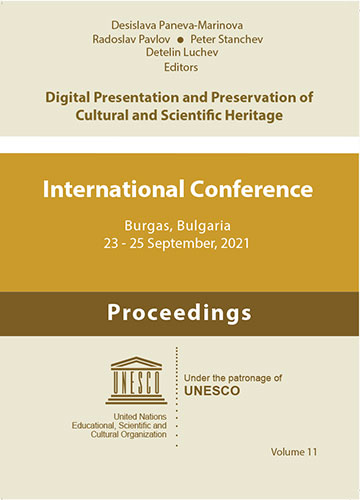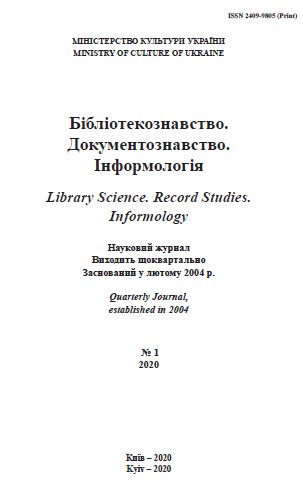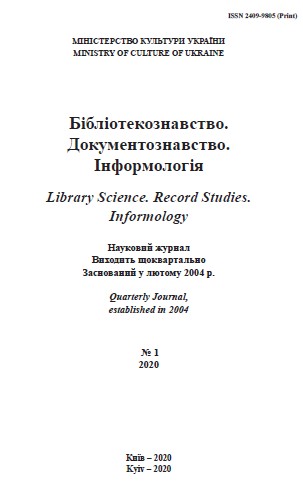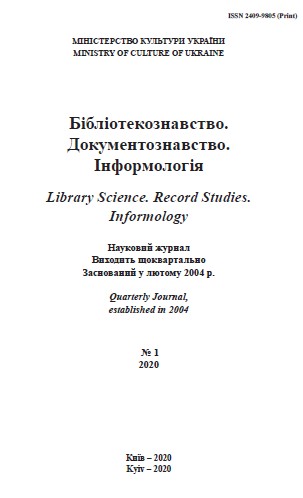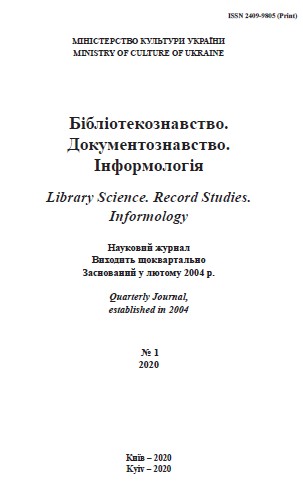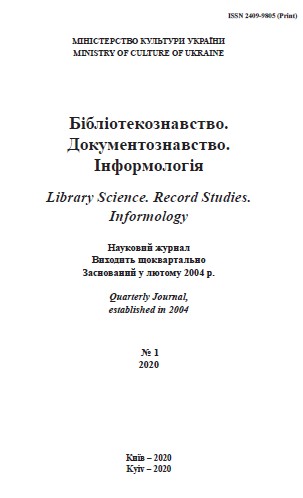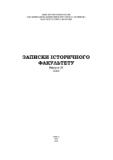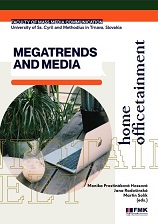Author(s): Iryna Biriukova / Language(s): Ukrainian
Issue: 31/2020
At the modern stage of development of cultural and educational activities of libraries, the introduction of innovative forms of work with the use of information and computer technologies has significantly intensified. The main activities of Odessa National Scientific Library, which is one of the leading cultural, educational, scientific and information institutions of Ukraine, are customer service, information activities, the formation of documentary resources and their preservation, socio-cultural activities, research, cooperation with domestic and foreign libraries, research and educational institutions, international library cooperation and others. Each of these areas is to some extent fulfilled through digital projects implemented with the use of computer information technology, and match all the main functions of socio-cultural activities, which include information, cognitive, cultural and educational, communicative and organizational, practical, entertaining, aesthetic, creative, relaxing, etc. Among the most effective digital projects are projects of web portal development (odnb.odessa.ua), project sites "Virtual Museum of the History of the ONSL", "Digital collection of ONSL publications", "Digital Library" Treasures of Ukraine "," Old Engraving ", a virtual exhibit of new arrivals, an electronic catalog, collections of databases on local lore, and ONSL content on social networks are also very popular. Thanks to these projects, ONSL actively implements and develops virtual services, trying to provide information, research, educational, cultural and other needs of library users by means of information and telecommunication technologies, in particular: • provides online a significant array of information about the composition and structure of library collections through the reference and search engines of electronic catalogs; • ensures the functioning of the web portal and the 24/7 availability of e-library, digital collections, in particular, digitized documents from the library, which strengthens Ukraine's integration into the European and world information space, including worthy representation of the historical and cultural heritage of Ukraine; • promotes digital resources of libraries, archives, museums of Ukraine and the world to help scholars and educators; • provides reference assistance in finding and selecting sources of information through virtual reference services; • accepts and completes orders for electronic delivery of documents, • accepts and completes orders for indexing documents according to UDC system; • organizes and implements a significant number of online projects aimed at meeting research, educational, cultural and other needs of citizens; • promotes the acquisition of digital literacy skills, the use of digital data; • studies and makes available new ideas online, practices initiated in library institutions during quarantine period, information on best international practices; • actively communicates with users and colleagues on social networks.
More...
